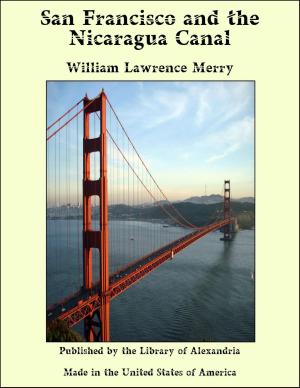Types of Naval Officers: Drawn from the History of the British Navy
Nonfiction, Religion & Spirituality, New Age, History, Fiction & Literature| Author: | Alfred Thayer Mahan | ISBN: | 9781465547194 |
| Publisher: | Library of Alexandria | Publication: | March 8, 2015 |
| Imprint: | Language: | English |
| Author: | Alfred Thayer Mahan |
| ISBN: | 9781465547194 |
| Publisher: | Library of Alexandria |
| Publication: | March 8, 2015 |
| Imprint: | |
| Language: | English |
Although the distinguished seamen, whose lives and professional characteristics it is the object of this work to present in brief summary, belonged to a service now foreign to that of the United States, they have numerous and varied points of contact with America; most of them very close, and in some instances of marked historical interest. The older men, indeed, were during much of their careers our fellow countrymen in the colonial period, and fought, some side by side with our own people in this new world, others in distant scenes of the widespread strife that characterized the middle of the eighteenth century, the beginnings of "world politics;" when, in a quarrel purely European in its origin, "black men," to use Macaulay's words, "fought on the coast of Coromandel, and red men scalped each other by the great lakes of North America." All, without exception, were actors in the prolonged conflict that began in 1739 concerning the right of the ships of Great Britain and her colonies to frequent the seas bordering the American dominions of Spain; a conflict which, by gradual expansion, drew in the continent of Europe, from Russia to France, spread thence to the French possessions in India and North America, involved Spanish Havana in the western hemisphere and Manila in the eastern, and finally entailed the expulsion of France from our continent. Thence, by inevitable sequence, issued the independence of the United States. The contest, thus completed, covered forty-three years. The four seniors of our series, Hawke, Rodney, Howe, and Jervis, witnessed the whole of this momentous period, and served conspicuously, some more, some less, according to their age and rank, during its various stages. Hawke, indeed, was at the time of the American Revolution too old to go to sea, but he did not die until October 16, 1781, three days before the surrender of Cornwallis at Yorktown, which is commonly accepted as the closing incident of our struggle for independence.
Although the distinguished seamen, whose lives and professional characteristics it is the object of this work to present in brief summary, belonged to a service now foreign to that of the United States, they have numerous and varied points of contact with America; most of them very close, and in some instances of marked historical interest. The older men, indeed, were during much of their careers our fellow countrymen in the colonial period, and fought, some side by side with our own people in this new world, others in distant scenes of the widespread strife that characterized the middle of the eighteenth century, the beginnings of "world politics;" when, in a quarrel purely European in its origin, "black men," to use Macaulay's words, "fought on the coast of Coromandel, and red men scalped each other by the great lakes of North America." All, without exception, were actors in the prolonged conflict that began in 1739 concerning the right of the ships of Great Britain and her colonies to frequent the seas bordering the American dominions of Spain; a conflict which, by gradual expansion, drew in the continent of Europe, from Russia to France, spread thence to the French possessions in India and North America, involved Spanish Havana in the western hemisphere and Manila in the eastern, and finally entailed the expulsion of France from our continent. Thence, by inevitable sequence, issued the independence of the United States. The contest, thus completed, covered forty-three years. The four seniors of our series, Hawke, Rodney, Howe, and Jervis, witnessed the whole of this momentous period, and served conspicuously, some more, some less, according to their age and rank, during its various stages. Hawke, indeed, was at the time of the American Revolution too old to go to sea, but he did not die until October 16, 1781, three days before the surrender of Cornwallis at Yorktown, which is commonly accepted as the closing incident of our struggle for independence.















